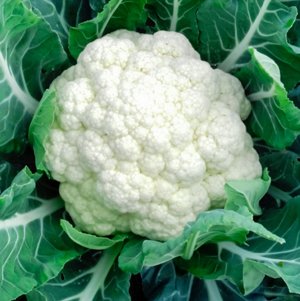This cruciferous veggie came late to my weekly shopping list. I prefer its cousin, broccoli (more on its benefits here). A quick note on cruciferous vegetables before I tell you about the health benefits of cauliflower: these "cross-bearing" vegetables are a diverse group of produce, versatile in colors, shapes, and sizes. Their name derives from their four-petal flowers that are shaped like a cross. This group includes broccoli, cauliflower, cabbage, kale, bok choy, arugula, Brussels sprouts, collards, watercress, and radishes.
Now when it comes to cauliflower, it provides the following perks:
- it improves digestion because it is full of fiber and also makes you feel fuller for a longer time
- it boosts brain power with choline, which can enhance memory and improve communication between cells
- it is a good source of glucosinolates, which help prevent cell mutation and hence cancer and support your body's detox enzymes
- it is said that more than 90% of cauliflower weight is water, which makes it low in calories
- it reduces inflammation and is packed with antioxidants
And to top all of this, cauliflower is quite versatile. You can bake it, roast it, steam it, mash it, or even make "rice" with it. I concocted a pizza crust with cauliflower several weeks ago. That turned out to be quite delicious! Plus you can eat a lot of it without feeling bloated or guilty about consuming too many calories. The recipe for the cauliflower crust pizza can be found here.
Bon appétit

